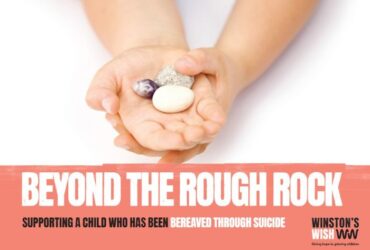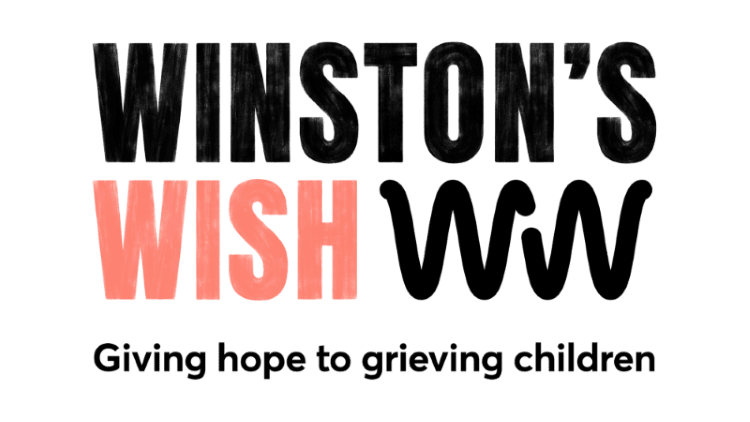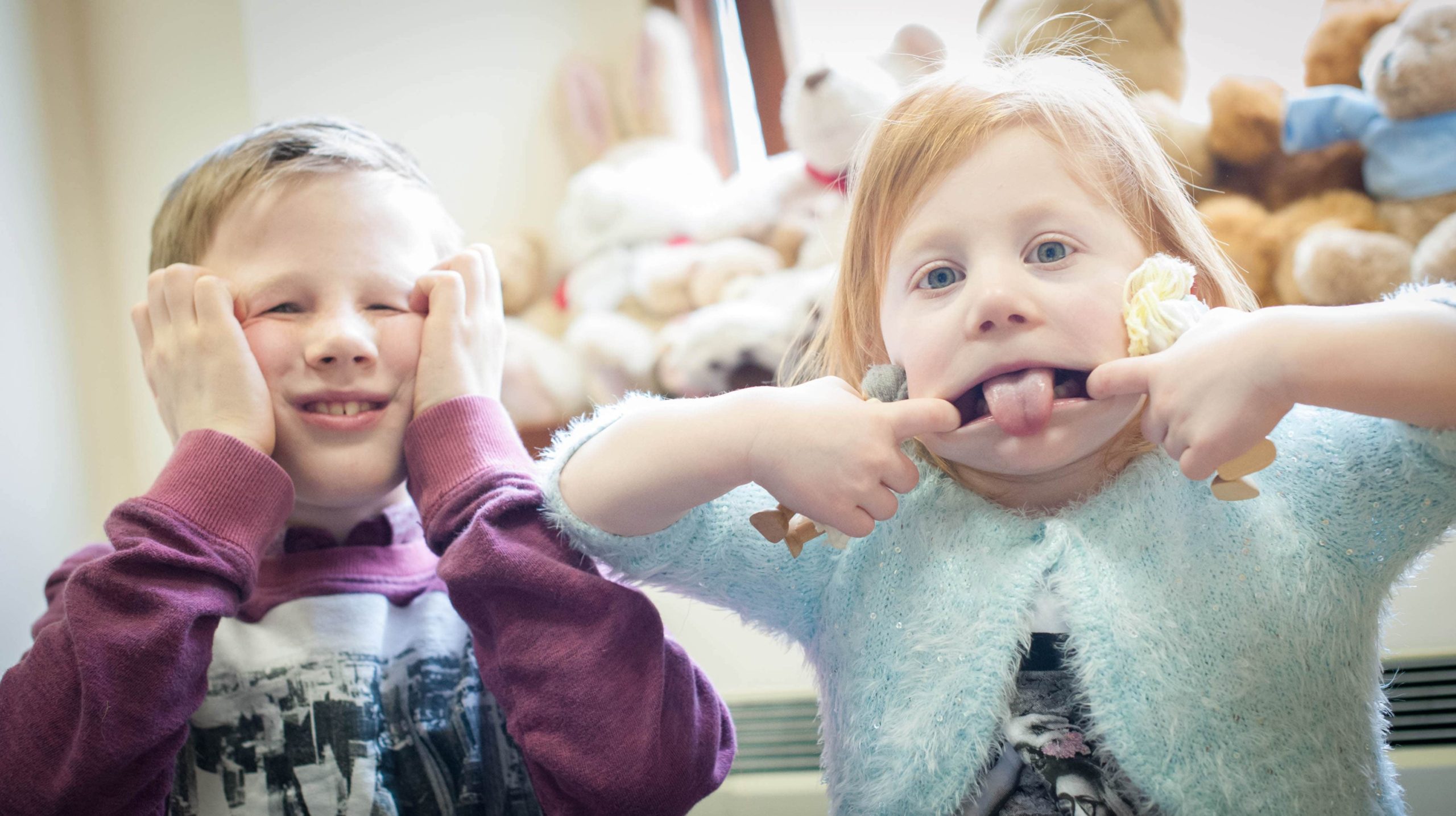When someone dies by suicide, children and adults may experience a number of complicated and often conflicting emotions that can feel difficult to manage. You may feel angry at the person who died at the same time as feelings protective and loving. You may feel sadness and pain as well as relief and guilt.
Our team talk through some of the common feelings you may experience following a death by suicide. However, it’s important to remember that everyone grieves in their own way and there is no right or wrong way to feel.
Numbness, shock and disbelief
“The day after, I was walking around as if nothing had happened. It couldn’t be real, could it? Surely I’d wake up and find it was a dream?”
By its very nature, suicide is often untimely, unexpected and may be violent. Sometimes a death through suicide comes out of a clear blue sky to those close to the person who has killed himself or herself. Even if someone has said they plan to kill themselves or has attempted to do so before, the death will still come as a shock and it can be a long time before you can believe it is really true.
Guilt, anger and even relief
“I hate that she died like this and sometimes I hate her too”
Guilt and anger are common reactions in bereaved people but tend to be felt more intensely and for longer by relatives and friends of people who have killed themselves. You may feel guilt that you are alive and that you didn’t or, indeed, couldn’t prevent the suicide.
You may be angry for being hurt like this and being left behind to cope. You may find it impossible to ‘switch off’ the last conversation.
Some people may also feel some sense of relief, especially if there have been frequent suicide attempts or violence or if your family life has been dominated by one emotional crisis after another.
Rejection and betrayal
“We had gone through so much together and I’d given him so much support. Yet it’s as if I hadn’t cared less – or as if he hadn’t.”
Family members often feel rejected by someone who has killed themselves. You may be left asking ‘Why did he or she do this to me?’ ‘Did I fail them in any way?’ ‘What have I and the children done to deserve this?’ You may have devoted years to supporting a child or partner with depression and feel all your loving care has been rejected. One writer said ‘suicides put their skeletons in other people’s closets’.
Shame and blame
“At the funeral I knew his mother was looking at me and thinking ‘this wouldn’t have happened if you hadn’t left him’. She didn’t know the half of it…”
Suicide is thankfully no longer a crime but there still seems to be a stigma associated with it. The legal framework that goes with the investigation and inquest can make families feel on trial. You may feel that neighbours, work colleagues or even other members of the family are questioning the death in a way they never would if the death had been through cancer of heart failure.
Relatives may be desperate to understand what has happened and, in trying to make sense of everything, they may try to put the blame on to someone other than the person who died. This is even harder if you are already blaming yourself, however much you understand that nothing anyone says or doesn’t say, does or doesn’t do can cause someone to die by suicide.
One of the particularly hard feelings is shame; adults often feel that there is a strong sense of shame attached to a death by suicide and they try to protect their children from this feeling.
Trying to make sense of it
Suicide can seem like a totally meaningless act and those left behind are often desperate to understand more about why it happened. For some people, the list of questions is endless and the search for answers can become a big part of your life. The list of questions is often led by ‘why?’…..
- Why?
- Why did it happen?
- Why now when s/he seemed so much better?
- Why didn’t s/he say anything?
- Why did s/he do this to me and the children?
- What did I do wrong?
- How can I bring the children up alone?
Searching for clues and answers
Many people point to events that have happened (redundancy, family break up, relationship difficulties, exams, financial difficulties etc) and see these as the cause. What is more complicated, though, is the fact that many people are able to weather similar pressures without the despair that leads to suicide. Some people are more naturally resilient or have better mental health.
Only the person who dies knows how all the ‘whys’ joined with all the feelings and thoughts and all their own emotional history to make suicide seem the only choice. ‘Final straws’ may be the weight of iron girders or as light as gossamer – only the person who died knew what the final straw may be.
This search for clues and the need to make sense of the answers is probably one of the biggest challenges to face. In the end, it may be a case of accepting that there are things that will never be known. Some people find that it helps to settle on an answer they can live with, others find they can live with not knowing.
Saying goodbye
Attending the funeral or memorial service is an important and often daunting event for any bereaved family. You may have regrets that you couldn’t stop the suicide but feel that the funeral is something positive you can do for the person who died.
This can then become an opportunity to celebrate their life and achievement and so help to remember positive feelings about them rather than just concentrating on the way they died. But in many cases, the funeral comes too soon to be thought of as any kind of tribute and instead is overshadowed by strong feelings over the way in which the death happened. If this is the case, it may help to plan a memorial service at a later date.
Being in the public eye
Sadly, the death of a family member by suicide means that you will have little chance of grieving in private. As well as the funeral, families also have to face an inquest which can be stressful. The full inquest may not be held until months later. This delay can be difficult for families; you may feel that you can’t begin to grieve properly until the inquest has taken place. It can also be painful to have your family member discussed by strangers or referred to in newspapers; it can feel as if they are ‘not yours’ any more.
Talking about it
“It is amazing how often you need to explain that they have died – each time I dread the next bit when you are asked ‘how did they die?’ Even when I feel strong enough to explain what happened I need to be sure that the person listening can take it. There’s often a painful silence and I end up trying to comfort them because they feel so tongue-tied.”
Death is still a difficult issue for many people to discuss and a death by suicide is probably one of the hardest things to explain or talk about. You may bump into someone you haven’t seen for a long time at the supermarket and be asked how your partner is, or a new teacher at your child’s school might ask if your partner will be coming to see the school play.
Thinking in advance about some answers to unexpected questions like these should make them easier to deal with.
Where to get grief support
Winston’s Wish is a charity that helps children, teenagers and young adults (up to the age of 25) find their feet when their worlds are turned upside down by grief. Through information about grief, on-demand helpline, email and live chat services, bereavement support and counselling, we support young people to understand their feelings, process their grief and find ways to move forward with hope for a brighter future.
We also help the adults who are caring for young grieving people, including parents, school staff and healthcare professionals, through information, resources, training and on-demand services.
If you need guidance and support, you can call us on 08088 020 021 (open 8am-8pm, weekdays), email ask@winstonswish.org or use our live chat (open 8am-8pm, weekdays). You can find out more about the support we offer on our Get Support page.
Our Winston’s Wish Crisis Messenger is available 24/7 for urgent support in a crisis. Text WW to 85258.
Other resources you might find helpful

Beyond the Rough Rock
Our book offers practical advice for families bereaved by suicide in the immediate days and weeks. Includes child-friendly activities to help families begin to make sense of what’s happened and look at ways to learn to cope.

Activities for bereaved children
Download our activities to help grieving children and young people to explore and express their feelings and emotions and to help them maintain memories of the person who has died.


